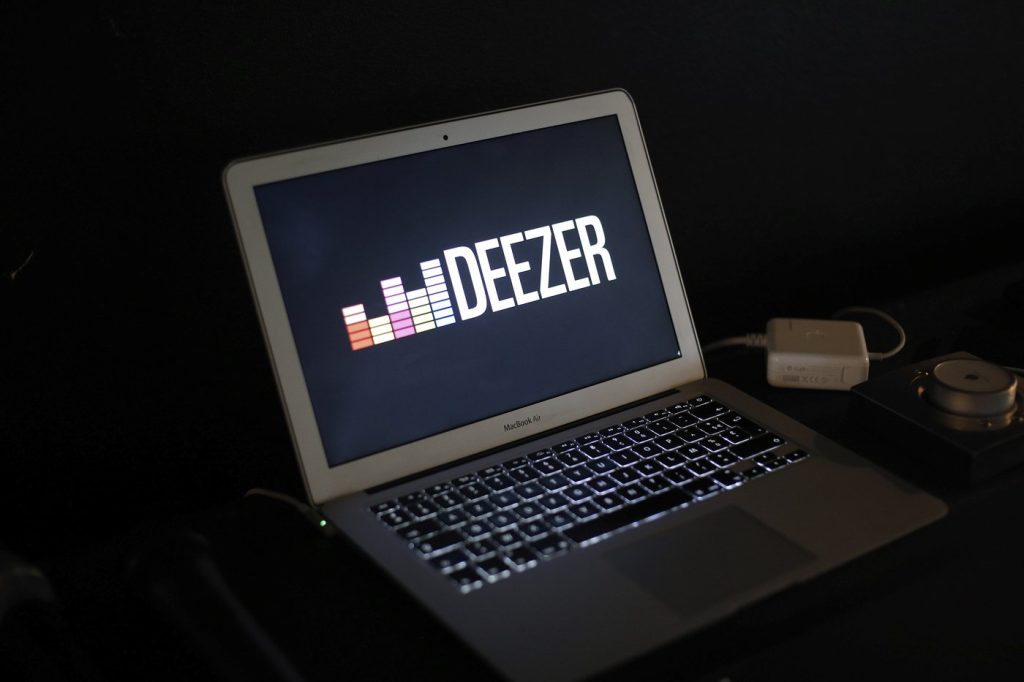LONDON (AP) – Music streaming service Deezer announced on Friday that it will begin flagging albums that feature AI-generated songs as part of its efforts to combat streaming fraud. Based in Paris, Deezer is currently facing challenges due to a significant increase in AI-generated music on its platform, with claims that these songs are being produced to fraudulently earn royalties.
The newly implemented feature will display an on-screen label indicating “AI-generated content” and inform listeners that certain tracks within an album have been created using song generators. While Deezer remains a smaller player in the competitive music streaming industry, which is largely dominated by Spotify, Amazon, and Apple, the company recognizes that the proliferation of AI-generated music presents an “industry-wide issue.” CEO Alexis Lanternier emphasized the importance of safeguarding the rights of artists and songwriters during a time when copyright laws are increasingly being scrutinized regarding AI model training.
The move by Deezer highlights the disruptions arising from generative AI systems, which utilize data from a broad spectrum of content available online, including text, images, and audio. AI companies are currently facing numerous lawsuits related to their practices of scraping information from the web without compensation to the original creators.
Recently, Deezer introduced an AI song detection tool, which revealed that 18% of the songs uploaded to its platform daily, translating to approximately 20,000 tracks, are entirely AI-generated. This figure has doubled from just three months prior when only 10% of uploads were reported as AI-generated. Lanternier stated that while AI holds various advantages, it also raises numerous queries for the music industry. He expressed that using AI in music creation is acceptable if an artist is involved; however, concerns arise when anyone, including bots, can generate music.
According to Lanternier, music fraudsters are producing massive quantities of songs in an attempt to appear on playlists and recommendations, ultimately accumulating royalties without a genuine human touch. Deezer has noted that fully AI-generated music still represents only about 0.5% of the total streams on its platform; however, they believe that the motivation behind these tracks is primarily fraudulent, with estimates suggesting that roughly 70% of listens for AI songs are generated by streaming “farms” or bots rather than actual listeners.
To further deter fraud, Deezer has announced that any AI-generated songs used in stream manipulation will be disqualified from receiving royalty payments. The controversy surrounding AI in the music industry has sparked discussions about its creative potential, alongside urgent concerns regarding its legality. Notably, popular AI song generators such as Suno and Udio are currently facing copyright infringement lawsuits filed by record companies, alleging that these services exploit the works of various artists, from Chuck Berry to Mariah Carey.
Furthermore, Gema, a German royalty-collection organization, has initiated legal proceedings against Suno in Munich, asserting that the service generates music strikingly similar to original works by artists it represents, including "Forever Young" by Alphaville, "Daddy Cool" by Boney M, and Lou Bega's "Mambo No. 5."
In response to the growing prevalence of fraudulent AI music, major record labels are reportedly negotiating with both Suno and Udio regarding compensation for their artists. To identify AI-generated songs for tagging, Lanternier mentioned that Deezer employs the same types of generators that create the music to analyze outputs. This process allows them to recognize patterns, as AI-generated songs inherently produce complex signals containing abundant information.
Lanternier elucidated that AI music generators tend to produce tracks with subtle yet recognizable patterns, which are constantly evolving. As a result, Deezer must update its detection tools daily to keep pace. “We’re fighting AI with AI,” he remarked, highlighting an adaptive strategy to counter fraudulent activity.
The potential for substantial financial gain from streaming fraud was illustrated by a criminal case from last year in the U.S., which prosecutors labeled as the first involving artificially inflated music streaming. Authorities charged an individual with wire fraud conspiracy, accusing him of generating hundreds of thousands of AI songs and using bots for automatic streaming, which resulted in an estimated $10 million in earnings.











